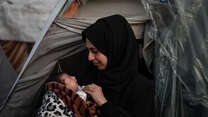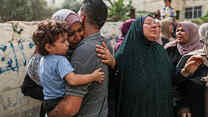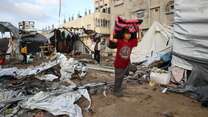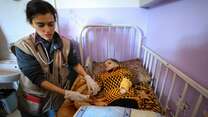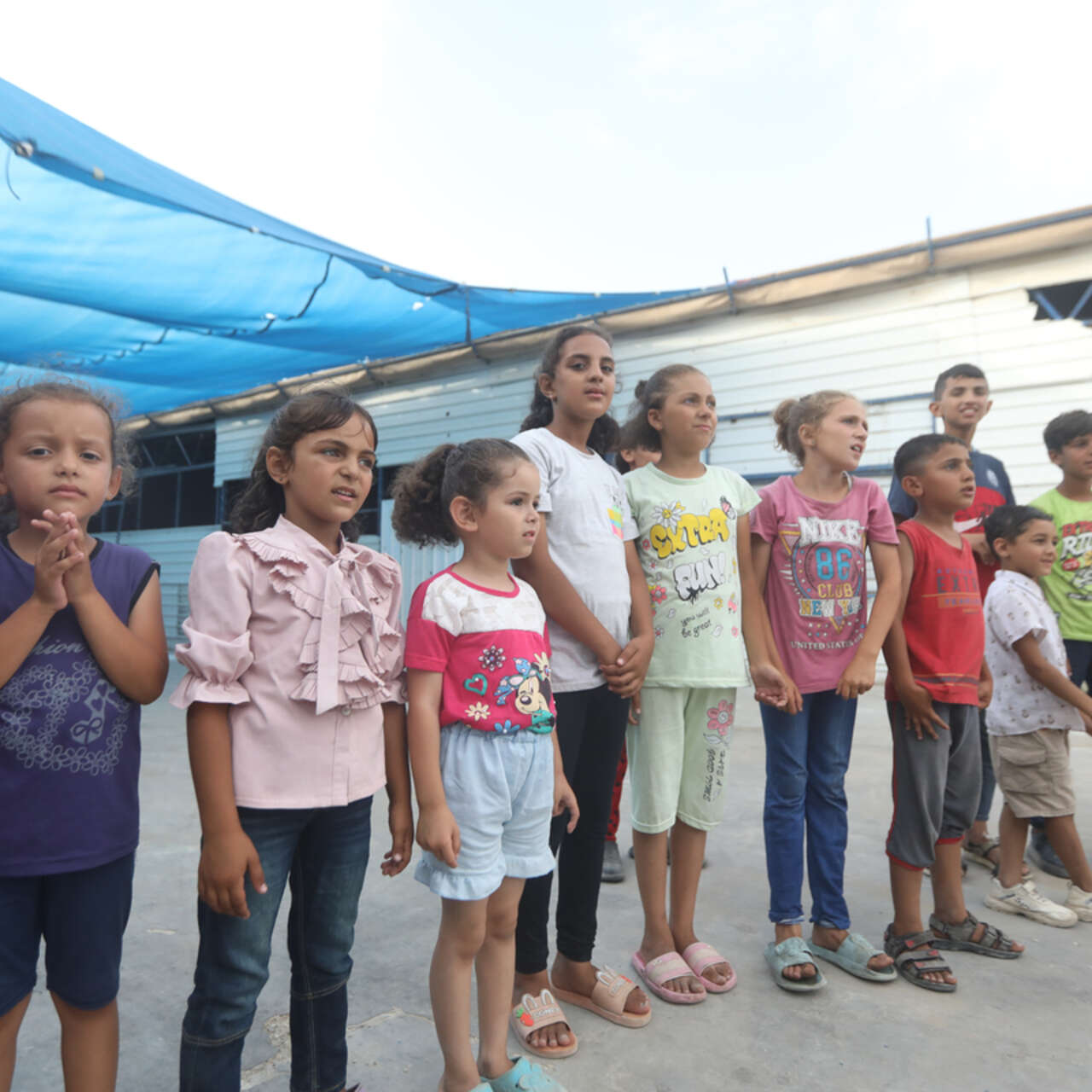
Right now, every child, parent and caregiver in Gaza is experiencing trauma.
Even prior to the recent escalation, over half a million children in Gaza needed mental health and psychosocial support. Now, the cumulative effects of unrelenting violence, forced displacement and the loss of an entire school year are likely to impact them for the rest of their lives.
We must act now to provide relief and scale up aid, to protect children and ensure their recovery. Read on to learn more about what children are facing in Gaza and what the IRC is doing to help.
Gaza’s children are without necessary “safe spaces”
Every child, parent and caregiver in Gaza has experienced trauma, as they witness deeply distressing events combined with repeated displacements and the absence of safety.
Currently, Gaza has no safe havens for civilians, with children bearing the negative impact of this most acutely. Persistent exposure to intense stress, including violence and displacement, during the formative years of a child’s life disrupts healthy brain and organ development, leading to long-term health challenges.
Ataf, 53, and her family have been displaced ten times in the past year. “When we left our house, I thought that the war would only last for three weeks,” she recalls. “My daughters and I each only packed a bag with summer clothes.”

Describing the current situation, Ataf says, “You hear a terrifying bombing sound every 3 minutes, day and night. This has a great impact on a person’s psyche.”
Caregivers and professionals are reporting that children in shock are seeking comfort by clinging to others during loud noises, experiencing nightmares and bedwetting, and wanting to sleep under the bed to feel secure.
At one point, Ataf’s 26-year-old son went missing—she does not know if he is still alive. Indeed, an estimated 17,000 children have been left unaccompanied or separated from their families in Gaza. Unaccompanied and separated children face high risks of child labor, exploitation, neglect, starvation, and mental health impacts.
Education in Gaza has been disrupted
Children in Gaza have now missed one whole year of education due to the destruction of school buildings and the collapse of the education system.
According to reports, the impact of war and trauma could delay Gazan children's education by up to five years. More than a year without schooling not only sets them back developmentally but also deprives them of the safe spaces that schools previously offered.

Through joining psychosocial sessions run by the IRC's partner Nafs, 15-year-old Heba has built a strong bond with other displaced girls, helping her cope with the trauma of war.
"They gave us hope and brought us together,” says Heba of the community facilitators. “Now, I spend time with the girls—my mood has changed, and I no longer sit alone."
How is the IRC supporting people in Gaza?
The IRC is working with community facilitators to create safe spaces for children's’ expression and communication, alongside providing mental health and psychosocial support services.
“These interventions help restore a sense of security, provide coping mechanisms, and enhance emotional resilience,” says Faten Abu Mousa, IRC’s Child Protection Manager in Gaza. “It also enables them to rebuild their lives, creating a foundation for healing and hope.”

The IRC is also working alongside local partners to deliver health, water, sanitation and hygiene services, children and women's protection programs and early childhood development activities.
Our Emergency Medical Teams are providing life-saving medical care in Gaza’s few remaining operational hospitals. The IRC and partners are also procuring and distributing medical supplies and medicine.
How can I help people in Gaza?
The IRC continues to call for an immediate and lasting ceasefire as the only way to protect Palestinian lives and enable the release of the remaining hostages.

